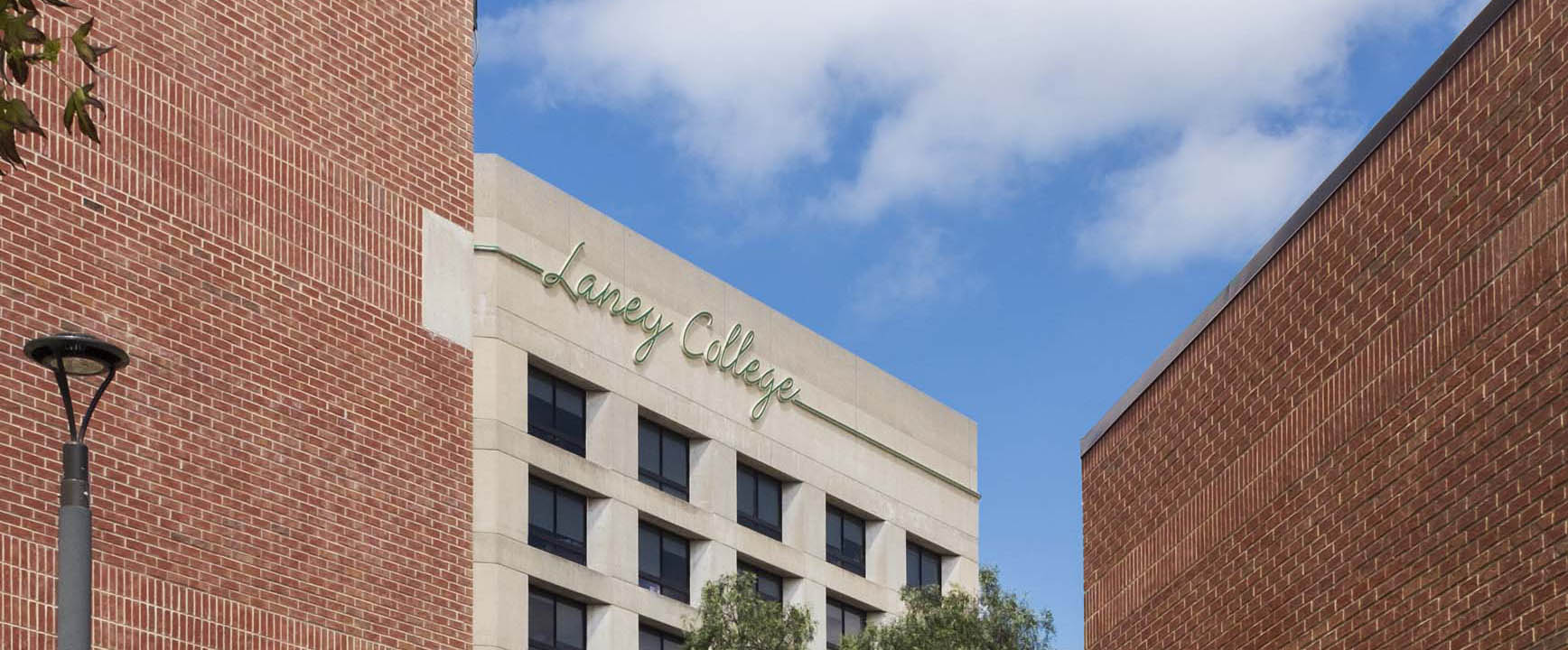Why I teach at Laney
We moved to the Bay Area in 1968, from Southern California, and Emeryville became our new home. I attended Emery High School to complete my senior year, and began attending Laney College during the evening during, spring of 1968. I was interested in Cosmetology and Laney College offered the program of Cosmetology. I had a great experience as a student, found the instructors to be knowledgeable and supportive of students, and realized I could continue my interest in education at Laney. After completion of my course work in the Cosmetology department, I continued with general education courses as a part-time student, once I received my license from the Cosmetology State Board exam at the Sacramento facility, I began working in a salon.
At Laney College I completed coursework towards my Associate of Arts degree with Cosmetology as my major. I continued taking courses towards transfer while working full time. I worked in three salons in the bay area and began working part time with the Cosmetology Department.
I completed towards my Bachelor’s degree – a Bachelors in Vocational Education at San Francisco State University in 1989 where I concentrated on my work with the vocational subject I had been teaching (all phases of the Cosmetology field offered at Laney College Cosmetology Department.)
After many years working as a Cosmetologist and teaching part time, I decided to continue with my education and chose Counseling as the field to enter at California State University Hayward at the time now renamed California State University East Bay. I completed work with an emphasis on marriage, family and child counseling and completed my coursework in 2005. I began working part time as an adjunct counselor at Laney College.
Now, my husband and I live in Castro Valley and we both very involved with our careers. We both love to travel, ski, scuba dive and just spending time with family and friends. We are lucky to have family in the area whom we are able to see often and enjoy their company as well as with friends.
Where to find me on campus
My office is in room T 613, there is a schedule on the door to let you know where I may be. I frequently spend my office hours (8-10) in T 613 on Mondays & Fridays and (11 – 1 & 2 – 4) Wednesdays and (8 – 10) Thursdays. If you need to contact me by phone, please call (510) 464.3234 – office phone number or (510) 508-4907 – cell number and leave me message or email me at lhernandez@peralta.edu
On campus activities
I am pretty involved with the programs I work with: Laney College Puente Program – is a part of the Puente Project a national award-winning program that for more than 25 years has improved the college-going rate of tens of thousands of California’s educationally underrepresented students. Its mission is to increase the number of educationally disadvantaged students who enroll in four-year colleges and universities, earn college degrees and return to the community as mentors and leaders to future generations. The program is interdisciplinary in approach, with writing, counseling and mentoring components.
East Bay Career Advancement Academy –
The East Bay Career Advancement Academy is a one-semester, basic-skills program designed to increase performance levels in reading, writing and math. Adults between the ages of 18 and 30 are eligible for the Academy, regardless of past educational experience. A high school diploma is not required.
Students receive assistance with registration, financial aid, counseling and other services. Through the Academy’s community partners, students can find referrals for transportation, childcare, career assessment and other services.
In the Academy, students are placed together in groups, or “cohorts,” of no more than 25. Students and faculty at each campus form a supportive learning community designed to provide opportunities for successful transition to careers in the sustainable industries of the future.
Students who complete the academy program are ready for a wide variety of vocational and academic pursuits, in addition to industry-specific training and employment opportunities.
I teach counseling classes for three of the pro
Designed and championed by the Ella Baker Center and the Oakland Apollo Alliance, the Oakland Green Jobs Corps is a job-training and employment pipeline providing “green pathways out of poverty” for low-income adults in Oakland. Based on the Pinderhughes Model, this groundbreaking program prepares trainees for careers in the Bay Area’s most vibrant green industries, including energy efficiency, green construction and solar.
UPDATE:
On June 22, the first class of the Oakland Green Jobs Corps graduated. We celebrated the occasion with a graduation ceremony attended by hundreds of friends and family and featuring speakers such as Oakland Mayor Ron Dellums, Peralta Community College Chancellor Elihu Harris, and Cypress Mandela Director Art Shanks. Check out some pictures of the graduation and profiles of some of the graduates.
THE PARTNERS:
- Laney College: a premier regional community college providing green vocational education.
- Cypress Mandela Construction Training Program: a renowned pre-apprenticeship program that serves young adults with barriers to employment; has strong connections to the building trades unions.
- Growth Sector, Inc.: a workforce intermediary connecting employers, government, and community agencies.
THE PROGRAM:
The first cycle of the program will train 40 young adults and will incorporate four stages: recruitment, pre-education and training, green-collar skills training and education, and on-the-job training with green employers.
Stage 1: Outreach, Recruitment, and Assessment, led by Cypress Mandela, will involve community outreach to recruit low-income young adults in Oakland and will include a College Placement Assessment.
Stage 2: Pre-Construction and Basic Skills Training, led by Cypress Mandela, will provide a range of services, including introduction to the skilled trades; carpentry; GED preparation; basic literacy and math; job readiness including resume development, interviewing skills, financial planning; social services and support including driver’s license acquisition, court intervention and record expungement as needed, drug and alcohol counseling, and support in acquiring other needed services such as childcare and financial aid.
Stage 3: Laney College Bridge to Solar and Green Construction, led jointly by Laney College and Cypress Mandela, will focus on the education and training specifically needed for green-collar employment. Students will earn community college credit. Education and training will emphasize solar installation, energy efficiency in buildings, green construction, and an introduction to the principles of ecology, environmental sustainability, and environmental justice. Social support and case management continue throughout.
grams participating: Renewable Energy 2 cohorts and Machine Technology/Welding cohort, the classes are Career Exploration courses.
Oakland Green Job Corps –
Designed and championed by the Ella Baker Center and the Oakland Apollo Alliance, the Oakland Green Jobs Corps is a job-training and employment pipeline providing “green pathways out of poverty” for low-income adults in Oakland. Based on the Pinderhughes Model, this groundbreaking program prepares trainees for careers in the Bay Area’s most vibrant green industries, including energy efficiency, green construction and solar.
UPDATE:
On June 22, the first class of the Oakland Green Jobs Corps graduated. We celebrated the occasion with a graduation ceremony attended by hundreds of friends and family and featuring speakers such as Oakland Mayor Ron Dellums, Peralta Community College Chancellor Elihu Harris, and Cypress Mandela Director Art Shanks. Check out some pictures of the graduation and profiles of some of the graduates.
THE PARTNERS:
- Laney College: a premier regional community college providing green vocational education.
- Cypress Mandela Construction Training Program: a renowned pre-apprenticeship program that serves young adults with barriers to employment; has strong connections to the building trades unions.
- Growth Sector, Inc.: a workforce intermediary connecting employers, government, and community agencies.
THE PROGRAM:
The first cycle of the program will train 40 young adults and will incorporate four stages: recruitment, pre-education and training, green-collar skills training and education, and on-the-job training with green employers.
Stage 1: Outreach, Recruitment, and Assessment, led by Cypress Mandela, will involve community outreach to recruit low-income young adults in Oakland and will include a College Placement Assessment.
Stage 2: Pre-Construction and Basic Skills Training, led by Cypress Mandela, will provide a range of services, including introduction to the skilled trades; carpentry; GED preparation; basic literacy and math; job readiness including resume development, interviewing skills, financial planning; social services and support including driver’s license acquisition, court intervention and record expungement as needed, drug and alcohol counseling, and support in acquiring other needed services such as childcare and financial aid.
Stage 3: Laney College Bridge to Solar and Green Construction, led jointly by Laney College and Cypress Mandela, will focus on the education and training specifically needed for green-collar employment. Students will earn community college credit. Education and training will emphasize solar installation, energy efficiency in buildings, green construction, and an introduction to the principles of ecology, environmental sustainability, and environmental justice. Social support and case management continue throughout.
My teaching philosophy
The Hispanic Outlook in Higher Education – May 6, 2002 ” if students are provided with an academic program that is engaging and respectful of their culture, supported by their local community, the students will succeed in an academically accelerated, as opposed to remedial, environment.” I believe this is true and continue teaching and learning with this in as a guide.



